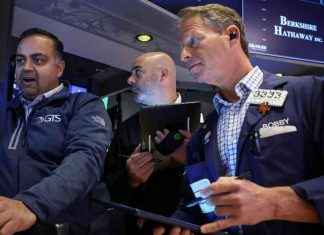Dubai: The start of share trading on First Abu Dhabi Bank is expected to attract more investors to the Abu Dhabi bourse and reflect positively on overall trading, according to the bourse’s chief executive.
In a statement on Sunday, Rashed Al Balooshi, CEO of Abu Dhabi Securities Exchange (ADX), said the bank is a “new turning point” in establishing a large banking entity in the UAE.
First Abu Dhabi Bank is the merged entity that resulted from combining the National Bank of Abu Dhabi (NBAD) and First Gulf Bank (FGB). It has Dh670 billion in total assets, making it the largest bank in the UAE and one of the largest by assets in the Middle East and North Africa.
Marwan Shurrab, head of high net worth and retail brokerage at Al Ramz Capital, agreed with Al Balooshi’s view, saying that a greater weighting assigned to the new bank by MSCI would definitely attract more investors in the bourse especially institutional ones, that the UAE markets need.
The new bank has market capitalisation of around Dh111 billion, which is higher than that of FGB or NBAD, potentially warranting greater weighting on the bourse index. Shurrab said that the catalyst going forward for the bank’s shares will be news of greater weighting by the MSCI.
“We are expecting to see more passive inflows going forward as the MSCI starts the rebalancing and announces the increase in weighting … We’ve been seeing positive inflows into emerging markets over the past three weeks, so if you have a positive outlook on emerging markets, this [greater weighting of First Abu Dhabi Bank] is something positive because more inflows will be coming in,” he said.
In its statement, First Abu Dhabi Bank said its board of directors has decided on the bank’s direction in the coming period, and key priorities have been established.
“The bank’s strategy will be focused on establishing itself as a financial services leader that puts its customers first, delivers top shareholder value, and drives individual and institutional prosperity,” said Abdulhamid Saeed, the merged bank’s group chief executive officer.
He added that the merged bank is focused on becoming a “regional wealth adviser of choice.”
Discussing financial outlook for the new bank, Al Ramz’s Shurrab said, “Despite the fact that there are synergies and the banks eventually benefit from such mergers, going into a merger is costly. The initial cost implications usually pressure slightly the entities that are being merged. Having said that, the synergies going into play are high, and we’re going to see a lot of cost-cutting and restructuring … so that will benefit the bottom line of the new entity aggressively in 2017.”
FGB and NBAD earlier said that the one-time integration cost of the merger would be Dh600 million. The merger, however, is expected to reap a cost-saving opportunity of around Dh500 million a year, which will be realised over three years.
The bank said it plans to strengthen trade flows and financial links between the UAE and its trading partners, given the bank’s network across 19 countries.
Our editors found this article on this site using Google and regenerated it for our readers.







